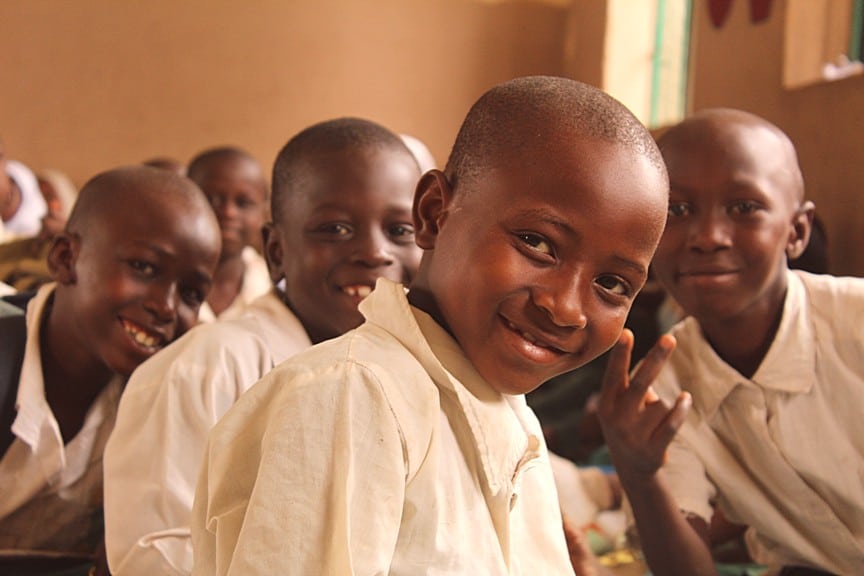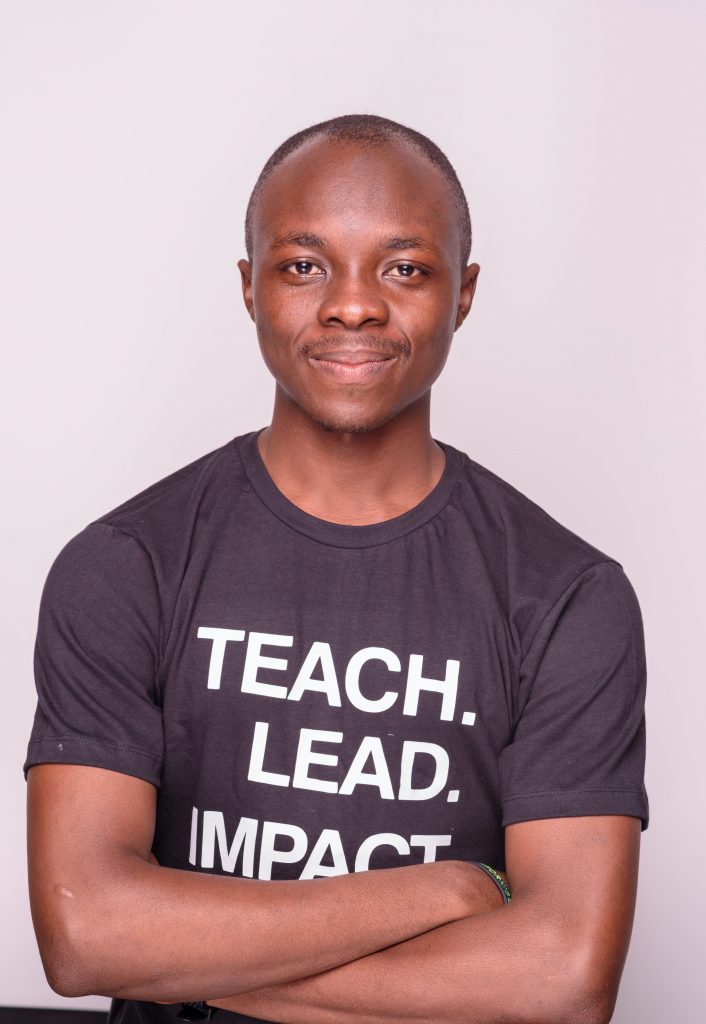
By Guest Author Ibrahim Abdullahi
As a Fellow at Teach For Nigeria, I have studied the struggle of addressing the challenges of inequality from teaching in classrooms to engaging stakeholders. On the surface, it would look as though the events that amplify the toxic effects of these acts of inequality are random, scattered, just something that happens from time to time. But when you think about it, analyzing and looking deeper into strings of events, incidences, and their consequences – even the consequences of the consequences – you find out that inequality is a systemic problem.
The system is flawed and rigged. It favors the so-called “upper class,” and the voices of the poor and vulnerable communities are muted, almost deliberately. On the surface, a lot is being said as to how much good is being done to actualize plans and so on. But when you take a holistic perspective to look, there really is not much being done. The plans implemented by Nigeria’s leadership to achieve equality and inclusion and ensure that all voices are heard are not truly being acted upon. These plans, therefore, fall into shambles, and this is the exact same reason why racism or any other forms of inequality prevail anywhere.
Most of this is the result of glaring inequalities in resource distribution with high levels of marginalization, especially in low- income communities. These development partners invest a lot so the country develops, but the monies are siphoned and misused in some cases, even with the extensive nature of scrutiny applied. Teach for Nigeria Fellows have engaged schools, most of which lack relevant infrastructure for day-to-day activities for teaching and learning. Two hundred kids aged 6-to-11-years-old learn in the same classroom building, sitting on cold hard floors in the harmattan season when the cold is at its harshest and infections prevalent due to windy conditions. How then do you expect their voices to be heard when even basic necessities are not being provided?
International Help In Tackling Inequality
In Nigeria, the struggle to address the issues of inequality has been a tug of war, a relentless one by all parties. Committed to achieving the Sustainable Development Goals (SDG), The United Kingdom’s Department For International Development (DFID) invests a significant lot in various sectors addressing humanitarian crises including poverty, promoting economic and rural development, and better access to education and health sectors. They provided an estimated £655,189,649 in education alone from 2012 to 2019. However, according to the Department For International Development (DFID), despite significant natural resources and international aid, more than 100 million people, around two-thirds of Nigeria’s population, survive on less than £1 a day – representing a quarter of Africa’s extreme poor. It is no surprise then that Nigeria has about 10% of the world’s out-of-school population and only 61% of 6-11-year-olds regularly attend primary school. In fact, Nigeria has the world’s highest number of out-of-school children.
How Teach for Nigeria Fights Inequality
Teach For Nigeria, which is part of the Teach For All Global Network, has invested significantly in changing the narrative. To address the long-standing issues of inequality and lack therein of all forms of inclusion, the two-year fellowship builds the capacity base of its fellows, communities, and educational institutions, engages in conversations and dialogues to influence policy and its implementation, and further equips fellows as they work on “Be The Change” projects within and beyond the fellowship to ensure inclusion. Fellows are placed in the poorest and most vulnerable communities. As they conduct their work as exceptional educators, they also amplify the voices of their host communities to ensure that they are not left behind and their needs are met without allowing barrier factors to come into play such as tribe, religion, social status, or political inclination.
As a Fellow with Teach For Nigeria, I have had conversations with community residents like the ones around my placement school in Kaduna State Nigeria; community leaders within and around the state – through regular engagements or stakeholder engagements scheduled for some projects we work on to ensure inclusion; school administrators that have scores of years in terms of experiences; and the 6-to-11-year-olds that undergo learning under harsh conditions in my classroom. From all of these engagements, I have learnt a lot of important lessons.
One of my greatest takeaways is that you cannot achieve sustainable development without community involvement and community participation. These communities are the cells of organs where organs make up the system. If the cells are cancerous, you target those cells specifically – you look and listen before doing the work. These communities have a better understanding of their own problems, their aspirations. They know better than anyone what they want, and they play a large role in ensuring whatever is being done is sustainable. Considering this, one major challenge is that the “big shots” that make the decisions do not listen to communities, and you find that development happens mainly within city centers, where it is very easy to show that “oh here we are, we are working!” This is very convenient for the coming elections so they have another chance of filling their very deep pockets at the expense of the country’s development and several decades’ worth of fight against inequality in all forms.
Progress in Action
As part of our roles as fellows, we amplify the voices of these communities to ensure that they attain excellent education – amongst other important sectors of development. An example of how this has been actualized is the case of the Nigerian Henry Anumudu. Henry Anumudu, alumni of Teach For Nigeria, is a fantastic storyteller who was featured by Ben Teller Media. He shares stories of the host communities of fellows on some of the development dialogue platforms in Africa, which has led to a sharp increase in educational development in Abeokuta town, Nigeria – within a period of two years. This development might look like an “overnight success,” and the truth is, even for myself, I can’t help but see it that way sometimes. But none of us can ever forget the legwork Henry and all the other Fellows put in. How do they do this? Allow me to share.
They teach in the classroom in the most exceptional and experiential ways with exemplary resourcefulness. They share these approaches with other educators. They visit the homes and intimate areas of the communities their students come from. They listen to them, ask questions, fundraise for some of their expenses, visit the parents at workplaces, markets, and so on. They go the extra mile – and another extra set of miles in order to listen, ask incisive questions as to what they want the future to look like, their roles in shaping the future, the roles of their children, and so on. They then put more effort into sharing these stories with the decision-makers from diverse realms – for-profit and not for profit, public or private, international development partners – making their voices heard. In turn, after answering the fellows’ questions for themselves, understanding that the fellows invest passionately in their development and for the coming generations, these marginalized communities also go all out in making their voices heard. Regardless of their background and status, they play important roles in projects that are being implemented by fellows such as our “Teaching Without The Box” project, created to ensure inclusion before, during, and after the pandemic, and “Sharing Life Africa,” which amplifies voices through storytelling.
Inclusion As The Key to Equality
It is very easy to tag these marginalized communities as “disinterested, unconcerned, and not proactive to their own development.” This has been stated several times. It is true that sometimes, communities lose interest. They shouldn’t, but they do, sometimes. Their frustrations from the failed promises made by politicians, especially over the past two decades, could make them turn their attention from potential progress to just surviving on a meager $1 per day. However, it is especially more worthy of note, that our engagements and continued conversations have proved that many are more willing and ready.
As we move through the implementation stages of our “Teaching Without The Box” project as Fellows of Teach For Nigeria, we have seen the results of putting communities first. They take charge of doing their part. They took charge of advocacy and campaigns to ensure that girls are not left out in the fight to achieve goals, participate in data collection, task local community leaders to engage the government, and, through radio call-in, call out those that claim to represent their constituencies even though they have not seen them in years. This will ensure that themselves, and my 6-11-year-old learners and others like them, are not left behind.

Interested in applying? Bookmark the Teach for Nigeria Fellowship Program to your ProFellow account.
© Victoria Johnson 2020, all rights reserved.